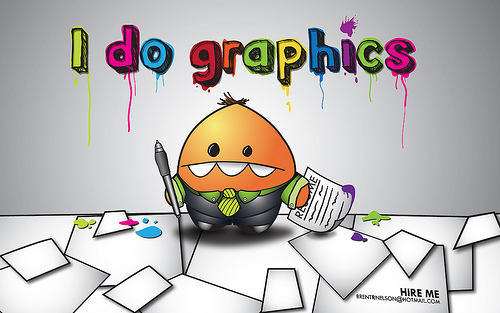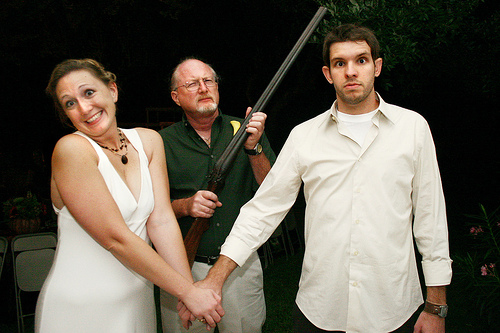“How exactly do you make your paints?”; What if Google hired artists?
Ben and I were chatting about interviews after hearing some horror stories from a friend. He made a jape about how bizarre technical interviews can be, and how we often ignore some really important factors… like a portfolio. A portfolio in this case answers the question of “what exactly have you created?”
I will pick on Google as it is the brunt of the “holy crazy interviews batman” trade, which is made more fun now that my sister-in-law is a recruiter there. I like to tease her. She knows that I am a fan of Google and think it is a fantastic place to work. I would be honored to work there again one day for example. Anyway, she doesn’t need my help in hiring… you have all heard about the food ;)
So, feel free to substitute Google for other high tech companies in any story below.
Imagine if Google interviews painters or artists in the same way that they hired engineers. Michaelangelo would show up, and would be hammered on questions about how he exactly makes and mixes his paints. Why does he use that particular kind? Why do those mixes chemically end up with the result that he desires. “If you were on a dessert island with 3 paints, what would they be and why?”, “Discuss the difference between RGB and CYMK”.
This may feel strange. A natural first step when you talk to an artist to see if they are any good is…. see what they have done! “Can I take a look at some of your pieces?” The artist will then probably show a variety that show a broad range of abilities. Some of you have probably had this experience hiring a wedding photographer.
Now, it isn’t that the process doesn’t matter. You want to chat about that side of things too. The right paint may result in a longer lasting piece. The right technique may result in you not getting annoyed by the photographer at your wedding. But, it is probably secondary to seeing what the person has actually done.
Google of course does a fair amount with art. The Doodles for example…. they have competitions for those, and the tools used may or may not play a factor.
Now, you may argue that the portfolio focus makes much more sense for art than other genres, including programming. You can tell a lot from seeing that art, and it is pretty static in time. Programming though, has to be maintained. It has to live. The “how” matters so much more. Maybe it is more like architecture than art. An architect can be known for his amazing looks, or building experiences, but the building better be structurally sound. You would still look at the portfolio of an architect first though, versus peppering them on structural engineering questions.
You do need to test the portfolio. It is one thing seeing that Bob Harris created an amazing website, a top 10 iPhone app, and contributed to a popular open source project…. but what exactly was the contribution. Projects have many folks involved. This is why you need to test the interviewee. Write some code with them. Talk through a real problem that they would actually have to solve on the job (shock horror). Do you *really* think that they will be implementing bubble sort on the job?
Interviewing itself is an art. It is hard to quickly make a decision on if someone will be a fit. Not only does there have to be a technical match in expectations, but there is the social match that is oh so important when a person joins a collective :) I have already talked about how the current process of hiring is like a shotgun marriage and broken but I definitely feel that in a constrained world there are three things that I favour when interviewing a candidate:
- Understand their portfolio (ask the candidate to come ready)
- Test the candidate to make sure they match with their portfolio (work with them on what they will be doing. E.g. pair on code)
- Talk to key people who know the candidate and learn from them about the person




